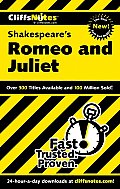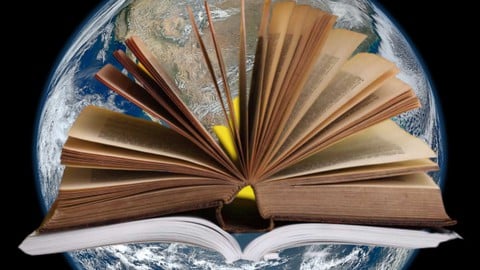Introduction
The Best Study Guides For World Literature Students The field of world literature is broad and intricate, encompassing various cultures, languages, historical eras, and genres. World literature gives students the chance to examine a variety of viewpoints and the depth of the human experience, from the timeless epics of ancient civilizations to the modern novels that tackle global challenges.
But learning about foreign literature might be intimidating. It’s simple to feel overburdened by the sheer number of texts to read, subjects to consider, and literary strategies to dissect.
Having the appropriate study resources is crucial for pupils navigating the vast realm of world literature. With the aid of an effective study guide, students may better comprehend important texts and interact with them critically, which will help them produce intelligent essays, be ready for tests, and develop a greater understanding of literary traditions around the world.
1. The Norton Anthology of World Literature
The Norton Anthology of World Literature is often considered a cornerstone for any world literature student. With its comprehensive selection of works from across the globe, the anthology offers a wide range of texts, from ancient myths to modern novels, and everything in between. It’s an excellent resource for getting an overview of world literature’s major movements and themes.
Why It’s Essential:
- Extensive Coverage: The anthology includes works from all continents and numerous historical periods, providing a balanced and thorough introduction to global literature.
- Contextual Information: Each selection is accompanied by detailed introductions and explanatory notes that provide historical and cultural context for the work. This is crucial for understanding how a particular piece fits within its cultural and literary context.
- Variety of Genres: The Norton Anthology covers a wide range of genres, including poetry, prose, drama, and folk tales, giving students a holistic understanding of literary forms across the world.
Key Features:
- Works are grouped according to regions and historical periods, making it easy to explore different literary traditions and movements.
- In-depth critical essays by scholars that help students understand each piece.
- The anthology is updated regularly to include contemporary works alongside classic texts.
Read more
2. CliffsNotes: World Literature
CliffsNotes is a well-known brand for academic study aids, and its series on world literature is no exception. Offering concise and accessible summaries, analysis, and study tips for a wide variety of literary works, CliffsNotes: World Literature is a valuable tool for both beginners and advanced students alike.
Why It’s Essential:
- Summaries and Analysis: CliffsNotes provides chapter summaries and analyses of key themes, characters, and literary devices in each work, helping students grasp the essential concepts quickly.
- Study Tips: The study guide includes helpful tips for approaching different types of literature, such as how to analyze a poem versus a novel, which can improve students’ analytical skills.
- Focused Content: CliffsNotes is particularly beneficial for students looking to quickly review key works and prepare for exams.
Key Features:
- Clear and concise breakdowns of major works in world literature.
- Analysis of key themes, characters, and symbols in each work.
- Tips for writing essays and preparing for exams.
- Study questions to encourage deeper engagement with the text.

3. SparkNotes: World Literature
Another popular study guide platform is SparkNotes, which provides free resources for students studying world literature. SparkNotes is known for its easy-to-read summaries and clear, structured analysis of classic and modern works of literature.
Why It’s Essential:
- User-Friendly: SparkNotes is particularly useful for students who are new to world literature or struggling to understand complex texts. Its simple explanations and summaries help students digest large amounts of information in a short amount of time.
- Comprehensive Coverage: SparkNotes offers resources on many major works, from Homer’s Odyssey to Chinua Achebe’s Things Fall Apart, covering a wide range of genres and periods.
- In-Depth Analysis: Along with summaries, SparkNotes provides detailed character analyses, thematic discussions, and insights into the author’s style and historical context.
Key Features:
- Detailed summaries and character analyses.
- Chapter-by-chapter breakdowns for works of literature.
- In-depth analysis of themes, symbols, and motifs.
- A section dedicated to writing and test-taking strategies.
4. Oxford Companions to Literature
Oxford Companions, such as the Oxford Companion to English Literature and Oxford Companion to World Literature, are encyclopedic references that provide in-depth information on a wide variety of literary works, authors, genres, and literary terms. These companions are ideal for students looking to expand their knowledge of world literature and gain a deeper understanding of its history.
Why It’s Essential:
- Authoritative: Written by leading scholars in the field, the Oxford Companions are respected resources that provide reliable, accurate information.
- Comprehensive Entries: The entries cover everything from specific works and authors to literary terms and movements, making them a valuable reference tool for students at any level.
- Historical Context: The companions offer detailed historical and cultural context for different literary traditions, helping students understand the significance of works within their original settings.
Key Features:
- Overviews of major literary traditions, movements, and authors.
- In-depth explanations of literary terms and concepts.
- A global perspective, with entries on authors from all over the world.
- Extensive bibliographies for further reading and research.
5. Literature Study Apps and Digital Resources
In the digital age, literature students can benefit from a variety of apps and online resources designed to enhance their study experience. These tools allow students to access literature in different formats, engage with interactive content, and connect with fellow students.
Goodreads
Goodreads is a social platform for readers, but it also serves as a valuable resource for literature students. The site provides access to reviews, book recommendations, discussion groups, and reading lists for works of world literature. Joining groups and engaging in discussions can help students deepen their understanding of the texts they’re studying.
Audiobooks and Podcasts
Listening to audiobooks or podcasts related to world literature can enhance comprehension, especially for dense or challenging works. Audiobooks allow students to absorb literature in an accessible way, while podcasts often feature interviews with authors and literary experts, offering fresh perspectives on classic works.
The Literary Hub
For students looking to stay current with literary news, The Literary Hub offers a wealth of articles, essays, and reviews on contemporary literature from around the world. While not strictly a study guide, it provides valuable context and can help students understand how current literary trends relate to the broader global literary landscape.
6. Study Groups and Online Forums
Sometimes, the best way to study world literature is by discussing it with others. Study groups and online forums provide an opportunity to share ideas, ask questions, and engage in debates about different texts. Sites like Reddit, Quora, or specialized literature forums allow students to join conversations with others who share their interest in world literature.
Why It’s Essential:
- Collaborative Learning: Engaging in study groups or forums helps reinforce understanding by explaining concepts to others and hearing new insights.
- Different Perspectives: Discussing world literature with others exposes you to diverse perspectives and interpretations, enriching your own understanding of the texts.
- Support System: Forums and study groups provide emotional support and motivation, particularly when exams or deadlines feel overwhelming.
Read more
7. Interactive Websites and Online Courses
For students who prefer interactive learning, there are many websites that offer online courses, quizzes, and interactive lessons on world literature. These resources can be especially helpful for self-study or supplementing classroom learning.
Coursera and edX
Both Coursera and edX offer online courses in world literature that range from introductory to advanced levels. These courses often include video lectures, readings, assignments, and quizzes, providing a comprehensive learning experience.
Khan Academy
Khan Academy offers a variety of free lessons in the humanities, including world literature. The platform provides brief, digestible video lessons on key works of literature and concepts, making it a helpful resource for students on the go.

Conclusion
Studying international literature may be a fulfilling and enriching experience, but in order to completely understand the complexities of other literary traditions, one needs the appropriate study aids and efficient study techniques.
Resources for students at all levels range from quick-reference aids like CliffsNotes and SparkNotes to extensive collections like the Norton Anthology of World Literature. Your learning experience can also be improved by utilizing digital resources like interactive applications, audiobooks, and online courses.
It is essential to employ a variety of materials that are appropriate for your learning style when writing essays, studying for tests, or just expanding your understanding of international literature. The secret to success is your capacity to interact critically with the texts and successfully apply what you’ve learned, regardless of whether you choose to read physical books, interact with digital content, or work with others.
Students can investigate the variety of human experience through world literature, and with the correct study materials, they can confidently and perceptively traverse this enormous and intricate field. You’ll be well on your way to grasping the texts and ideas that will form your knowledge of world literature if you choose the study aids that best suit your requirements.
Read more
FAQ
1. How can I improve my understanding of world literature if I’m struggling with certain texts?
If you’re struggling with certain texts, consider using multiple study guides, such as CliffsNotes or SparkNotes, for a clearer understanding. Listening to audiobooks can also help you engage with difficult texts in a more accessible way. Additionally, participating in online discussion forums or study groups can offer new perspectives and insights that might clarify confusing elements.
2. Are there any free resources available for world literature study?
Yes, several free resources are available for world literature students. Khan Academy, for example, offers free video lessons on key works of world literature. Goodreads and Literary Hub are also great platforms for exploring reviews, discussions, and literary news at no cost.
3. How do I balance studying for world literature exams with other subjects?
To balance studying for world literature with other subjects, create a detailed revision schedule. Break your study sessions into manageable blocks and prioritize your most challenging subjects. Make sure to allocate time for both active reading and revision, and practice answering past exam papers to enhance your exam technique.
4. What are some strategies for remembering key quotes for exams?
Focus on memorizing short, impactful quotes that are tied to key themes or characters. Use flashcards or mind maps to help reinforce your memory. Additionally, try associating quotes with specific ideas or scenes to make them easier to recall.
5. How can I use online courses to supplement my world literature studies?
Online courses, such as those offered on Coursera or edX, provide structured lessons and expert insights into world literature. These can supplement your classroom learning by providing a deeper understanding of specific texts or literary movements. They also often include assignments and quizzes that help reinforce the material.
Read more















